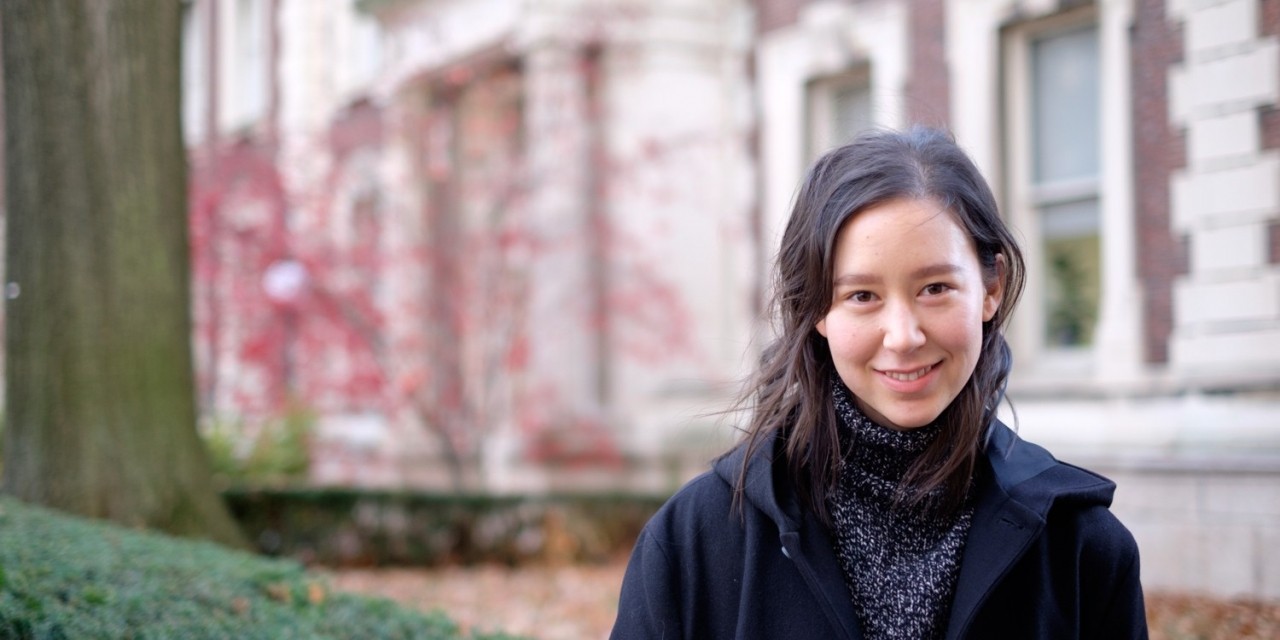Emily Fuhrman, MA Candidate in English and Comparative Literature

Where did you grow up?
Northern Virginia.
What drew you to your field?
The symbolic capacities of visual language.
How would you explain your current research to someone outside of your field?
I explore the ways twentieth-century modernists use visual signifiers to encode spatial information. I am particularly interested in authors who use typography, blank space, and textual composition to defamiliarize the reading experience. A book is like a map: it makes meaning through the arrangement of symbols. I gravitate to works that leverage this graphical power of language, in tandem with its syntactic and semantic capacity.
What is your favorite thing about being a student at Columbia GSAS?
Columbia has a rich intellectual community, so I find any opportunity to collaborate across disciplines deeply rewarding.
What resources or opportunities that Columbia provides are most valuable to you?
As an intern with the Digital Social Science Center and Center for Spatial Research, I was provided the opportunity to start a weekly workshop series focused on self-education and rapid skill acquisition in digital mapping. I wanted to create a space focused on pushing through the perceived opacity of digital methods without positioning any specific technology as an end in itself. The series brought to light some of the fundamental things that diverse branches of scholarship have in common, while focusing on digital mapping tools as ephemeral and instrumental rather than daunting and inscrutable. Cultivating hackspaces is especially productive in academia, wherein we so frequently have to bend systems to work with us, instead of for us. As an active member of the xpmethod group, I likewise have opportunities to engage with different dimensions of process-based scholarship.
Is there a common misconception about a topic in your field that you wish you could correct?
I think there is a tendency to construe digital methods within the humanities as reductive, oversimplified, and ill-equipped to handle nuanced speculation and analysis. Setting aside the fact that “digital” methods are, of course, not new, I like to think of the digital humanities as a collection of methodologies that seek to critically engage with modes of information sharing and knowledge production, rather than as a field unto itself.
Who are your favorite writers?
My long-term favorites include Susan Sontag, James Joyce, and Jorge Luis Borges. At the moment, I am very taken with Vito Acconci’s procedural text compositions.
Whom in your field do you consider to be a role model?
Though she is not squarely in my field, Rosalind Krauss.
What music have you been listening to lately?
White noise.
What is your favorite blog or website?
Dataisnature is a capacious resource for procedurally generated visuals.
If you were to die and come back as a person or a thing, what would it be?
If I were to die within the next year or so, it would be nice to come back as myself. I hate leaving projects unfinished. If I were to die after living a long and full life, I would be open to coming back as a barn owl.
